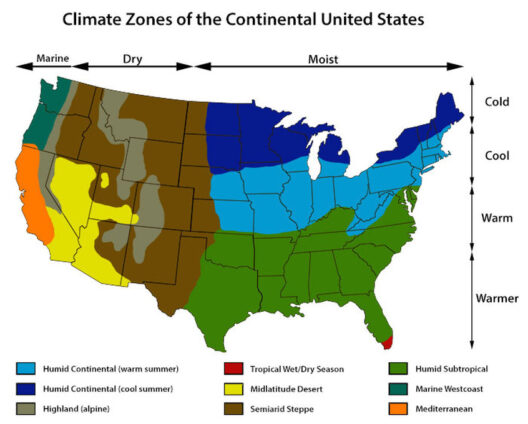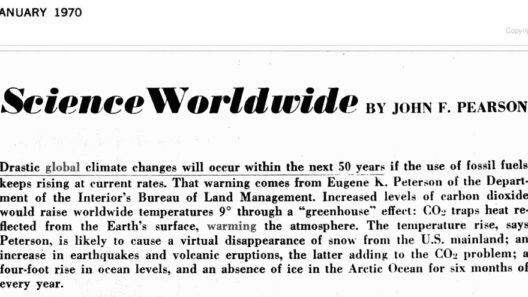As urban landscapes burgeon and societies evolve, the specter of waste management looms ever larger on the environmental horizon. Landfills, the grotesque byproducts of consumer culture, serve not only as a repository for our discarded materials but also contribute significantly to global warming. The intricate relationship between waste and climate change is both alarming and pivotal, urging a closer examination of the underlying factors driving this phenomenon.
First and foremost, it is crucial to understand the composition of waste. A significant proportion of what ends up in landfills comprises organic matter, such as food scraps, yard waste, and other biodegradable materials. As these substances decompose anaerobically in the absence of oxygen, they produce methane—a greenhouse gas that is over 25 times more potent than carbon dioxide over a century. This stark statistic encapsulates a fundamental irony; the very act of disposal, intended to resolve the issue of waste, inadvertently cultivates more pressing environmental challenges.
The overwhelming volume of waste generated globally is staggering. According to estimates, the world produces approximately 2.01 billion metric tons of municipal solid waste annually, and this figure is projected to rise by 70% by 2050 if no substantial actions are undertaken. In this relentless tide of discards, the issues go beyond mere carbon footprints; they encompass social, economic, and environmental dimensions that intersect in profoundly complex ways.
The fascination with landfills often stems from their physical enormity and the visible decay of civilization’s detritus. They serve as poignant reminders of consumption patterns that reflect societal values, consumer habits, and economic structure. However, this fascination belies the deeper, insidious consequences of waste accumulation—not only does it transform landscapes, rendering them unrecognizable, but it also impacts ecosystems and biodiversity significantly. Deforestation, wildlife habitats, and aquatic systems are frequently compromised by the uptake of pollutants associated with landfills.
In addition to the tangible environmental concerns, landfills provoke socio-economic ramifications that are less visible but equally damaging. For instance, marginalized communities often find themselves geographically closer to landfills. The “not in my backyard” (NIMBY) phenomenon further exacerbates social inequities, as powerful stakeholders prioritize their interests while sidelining vulnerable populations. These communities face health risks from landfill emissions, including respiratory diseases and other chronic health issues linked to pollutants released during decomposition.
Moving from landfills to the broader context of global warming, it is vital to recognize the systemic inefficiencies within waste management systems. Many municipalities grapple with limited resources, insufficient infrastructure, and outdated practices that foster an environment conducive to waste accumulation. A failure to innovate and adopt sustainable waste management strategies perpetuates a cycle of environmental degradation. For example, implementing more efficient recycling programs, promoting circular economy principles, and embracing waste-to-energy technologies could markedly reduce the volume of waste sent to landfills while simultaneously diminishing greenhouse gas emissions.
Moreover, consumer behavior plays a pivotal role in this narrative. The culture of consumption perpetuated by unbridled capitalism fosters an insatiable appetite for goods, leading to a continuous cycle of disposal and waste. The concept of planned obsolescence encourages manufacturers to design products with limited lifespans—resulting in a surfeit of discarded electronics, textiles, and plastics. This deliberate tactic is economized to enhance profit margins but carries dire implications for the environment. As plastic waste accumulates in landfills, it can take centuries to decompose, releasing harmful toxins that can leach into soil and groundwater.
Transitioning to an eco-conscious society requires a paradigm shift in how we view waste and consumption. Education and awareness are paramount in fostering responsible consumer behavior. Invoking change at the grassroots level through community-based initiatives can galvanize individuals and groups to engage in sustainable practices such as composting, reducing single-use plastics, and supporting local products. Grassroots movements have proven potent catalysts for legislative change, often leading to more stringent regulations on waste management and environmental protection.
The transition from a waste-centric model to a more sustainable approach necessitates collaboration across disciplines. Engaging scientists, policy-makers, businesses, and citizen advocates is critical to developing comprehensive strategies that address waste in ways that mitigate its impact on global warming. Multidisciplinary initiatives can facilitate the integration of innovative technologies and practices that minimize waste generation and enhance recycling efforts, thus shrinking our collective carbon footprint.
As one reflects on the vast implications of waste on the environment, it becomes evident that the link between landfills and climate change is complicated yet imperative to unravel. Addressing the looming threats posed by waste is not merely an exercise in environmental stewardship; it is a moral imperative that speaks to the socio-economic realities of our time. The decisions made today regarding waste management will invariably shape the resilience of future generations and the planet’s ability to withstand the pressures of climate change.
Ultimately, recognizing the profound implications of waste and its contributions to global warming can foster a renewed sense of responsibility and urgency. The journey from landfills to sustainable practices begins with both individual and collective action, urging communities worldwide to confront their waste issues head-on. The path forward necessitates not just a reduction in waste but a transformation in collective mindset—one that prioritizes sustainability and holistic consideration for the environments we inhabit.








